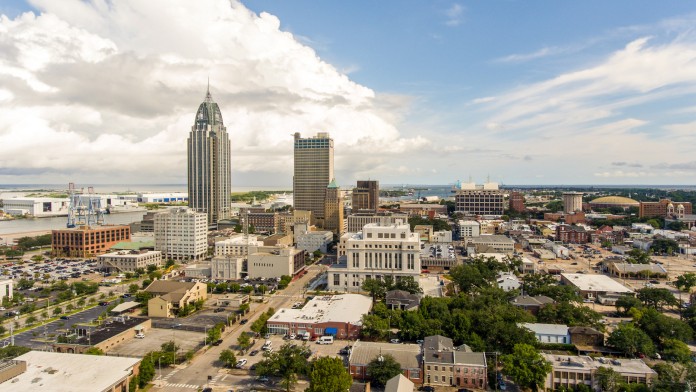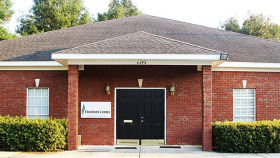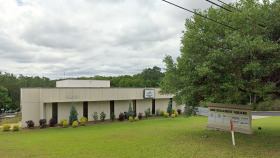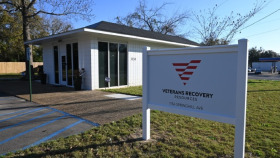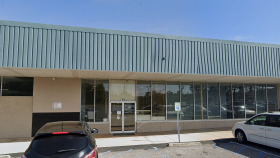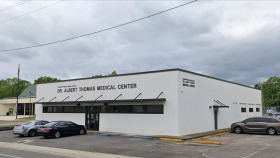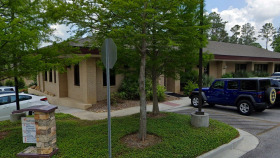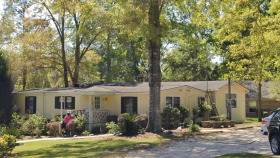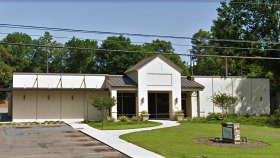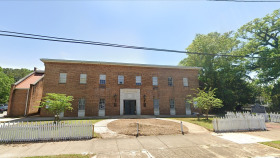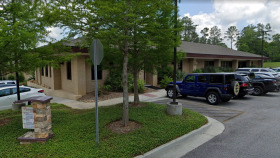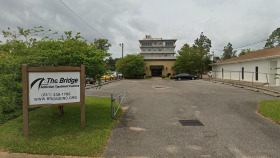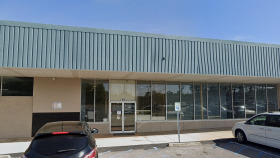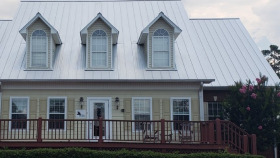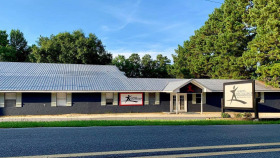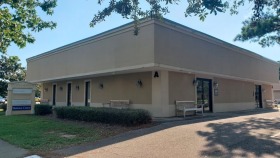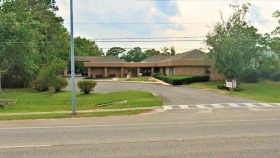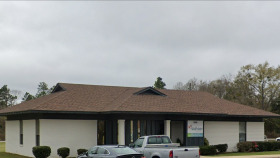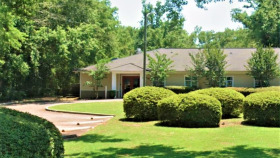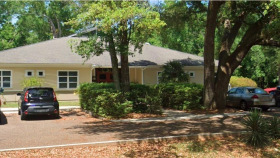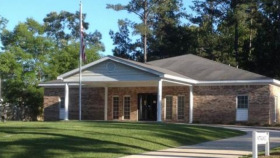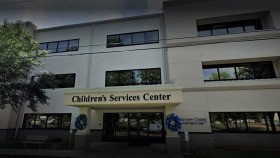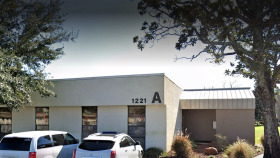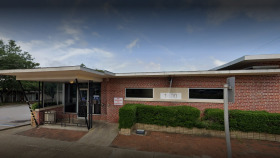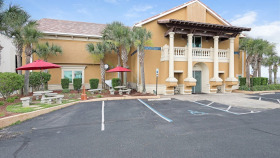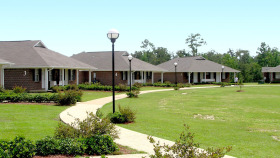Expert Insights
Two threats to the lives of all Mobile, AL residents should be on everyone’s radar: methamphetamine and fentanyl. Law enforcement and treatment professionals agree that these two substances pose the greatest drug threats in Alabama. Meth has been the biggest threat historically in the Cotton State, but fentanyl incidents have increased at an alarming rate in recent years. We can’t sit by and watch these numbers climb. There are currently just 14 drug treatment facilities in a 25-mile radius of Mobile. As the threat of fentanyl grows, and meth continues to wreck lives, we need more resources, including more specialized intervention and treatment programs that focus on these drugs.
~ Kerry Nenn
Cost of Drug Rehab in Mobile
A Mobile alcohol rehab will vary in cost depending on the type of program and several other factors. A few of those factors are listed below.
Inpatient vs. Outpatient: Inpatient treatment typically costs more than outpatient. While an outpatient program may last longer than an inpatient one, you are required to stay at inpatient facilities or detox centers in Mobile full-time, whereas, with outpatient treatment, you can live at home.
An inpatient program can also include special amenities such as holistic therapies, fitness centers, and spa services that can add to the cost.
Duration of Program: Inpatient programs can range in length from 30 days at minimum to 90 days or more. The longer your treatment stays, the more it will likely cost.
Insurance Coverage: If you have private insurance, it’s important to find Mobile drug rehabs that are considered in-network by your provider. This will maximize your coverage and reduce your overall out-of-pocket costs. Most plans will cover some, if not all, of your addiction treatment. This includes Medicare and Medicaid. You can call the number on the back of your insurance card for help with determining your coverage.
Location: Mobile is known for its Gulf Coast location. A rehab located along the Gulf with views of the water may require you to pay a bit more for the premium location. If you don’t have insurance, don’t let that keep you from seeking out addiction treatment. Alabama offers state-funded programs that offer care based on your income level. Other drug and alcohol rehabs in Mobile offer financial aid, scholarships, or will treatment based on a sliding scale of what you can pay.
Mobile Drug and Alcohol Statistics
In 2021, 116 people in Mobile County died from a drug overdose.1 Across the state, 836 people died from a drug overdose in 2017, and half of those deaths included opioids.2 In Alabama, drug-related overdose deaths are more likely to occur in men between the ages of 15 and 54.2 Men in that age range are also more than twice as likely as women to die from opioids.2
Across the state, overdose deaths involving fentanyl, a powerful synthetic opioid, and methamphetamine are on the rise, and deaths involving prescribed opioids are on the decline.2 In 2016 and 2017, fentanyl was the top drug involved in overdose deaths in Alabama, followed by heroin.2 Overdose deaths involving fentanyl are also increasing faster than any other illegal or prescription drug.2
Comparatively, Mobile County tends to trend a bit lower than the rest of the state when it comes to the number of drug overdose deaths by county and opioid-related deaths by county.2

On March 31, 2020, a total of 11,838 people in Alabama were in substance use disorder treatment.3

Almost 70% of those in treatment were treated for drug addiction.

24% of those in treatment were treated for both drug and alcohol misuse.

More than 90% of those in treatment were in outpatient treatment.
Drug and Alcohol Laws in Mobile
Alabama has laws in place designed to combat the significant increase in opioid-overdose deaths. If you find yourself in the criminal justice system, there are also services in place designed to divert people into addiction services.
Alabama Good Samaritan Act: Residents providing Naloxone or Narcan in good faith are protected from prosecution for a misdemeanor controlled substance charge if they provide their full name while calling for help and stay at the scene until that help arrives. You will not receive immunity for any felony drug charges, probation violations, or parole violations. Since it is a felony, there is also no immunity for possession of opiates.
Naloxone Distribution: Alabama residents can receive a free Naloxone kit following the completion of an online training course.6 After completion, the kit will be mailed to your address. Naloxone kits can also be obtained at the pharmacy once a standing order is downloaded from the Alabama Department of Public Health website.7 By signing the form, you’re acknowledging that you have:7
- Received information on how to recognize and respond to a possible opioid overdose
- Received information on how to administer Naloxone
- Been offered information or counseling on risk factors for opioid overdose, overdose prevention measures, and resources for addiction treatment services
Mobile Drug Court: This substance use disorder intervention program is designed to step in once a person is charged with a drug or related offense. Treatment lasts for 12 months and includes participation in 12-step programs, attending group therapy, and regular drug testing. The goal is the reduce the amount of crime caused by substance use disorder and provide needed help to individuals so they can re-enter society substance free. Participants must be charged with substance use or related felony offense, have an assessment that indicates a drug addiction, have shown no violent behavior, and be a possible repeat offender if no help is given.
Mobile Veterans Court: The Mobile County Veterans Court program was created in 2014 to keep veterans who have been charged with certain misdemeanor and felony crimes out of jail. Instead, they are diverted into the appropriate program. While in the program, veterans can receive medical and mental health treatment, help with finding a job, as well as housing assistance. Those who complete the program can have the charges against them dismissed.
Resources
- National Center for Health Statistics. (2021). County-level provisional drug overdose death counts.
- Alabama Department of Public Health. (2019). Overdose Surveillance Summary.
- Substance Abuse and Mental Health Services Administration. (2020). The National Survey of Substance Abuse Treatment Services – Alabama.
- Alabama Department of Mental Health. (n.d.). Substance Abuse Treatment in Alabama.
- Alabama Department of Mental Health. (n.d.) Substance Abuse Treatment Services.
- Alabama Department of Mental Health. (n.d.) Naloxone – Narcan Nasal Spray.
- Alabama Department of Public Health. (n.d.) Naloxone Frequently Asked Questions

